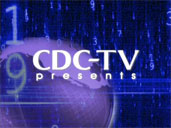In the Spotlight
 Prevention Guidelines:
Prevention Guidelines:
You Can Prevent Carbon Monoxide Exposure
CDC provides a list of three things to do and four things not to do in preventing CO exposure.
 Clinical Guidance:
Clinical Guidance:
Clinical Guidance for Carbon Monoxide (CO) Poisoning After a Disaster
The symptoms and signs of carbon monoxide poisoning are variable and nonspecific.
 Carbon Monoxide Poisoning Prevention Clinical Education
Carbon Monoxide Poisoning Prevention Clinical Education
This program is designed to enhance diagnosis, reporting, and treatment of carbon monoxide (CO) poisoning by clinicians and healthcare providers.
The Quiet Killer
Generator Use and Carbon Monoxide Exposure
Modeling the Effects of Outdoor Gasoline Powered Generator Use on Indoor Carbon Monoxide Exposures. Wang, S. H.; Emmerich, S. J.; NIST Technical Note 1637; NIST TN 1637; 23 p. August 2009.
About the Program
CDC works with national and state data sources to monitor, evaluate, and present information on carbon-monoxide-related illness and death in the U.S.
General Information
Small gasoline engines, disasters, houseboats, checklists, flyers, health tips, protection & prevention guidelines, public service announcements, questions & answers. More »
Research and Studies
Reports detailing how carbon monoxide can be produced by portable generators, motorboats, fires, and other emissions.
- Power Outage related
After disasters such as hurricanes, increased use of portable generators during power outages can produce harmful carbon monoxide. More » - Boat related
Motorboat, ski-boat, and houseboat exhaust can produce dangerous carbon monoxide. More » - Other
Reports on various cases of carbon monoxide emissions. More »
Related Issues
CDC monitors and evaluates surveillance data on CO-related illness and death, and works with state and local agencies to respond to CO-related issues.
- Floods
During and after a flood, you should know about power outages, how to keep food and water safe, how to clean up, and how to prevent carbon monoxide poisoning. More » - Hurricanes
Key facts about hurricane readiness and recovery, preventing illness and injury, cleanup, evacuation, etc. More » - Power Outages
What you need to know when the power goes out unexpectedly: safe drinking water and food, CO poisoning, first aid for electrical shock, etc. More »
Resources
On this page you can find useful documents and FAQs about carbon monoxide from various federal and other resources. More »
Contact Us:
- Centers for Disease Control and Prevention
1600 Clifton Rd
Atlanta, GA 30333 - 800-CDC-INFO
(800-232-4636)
TTY: (888) 232-6348
24 Hours/Every Day - cdcinfo@cdc.gov


